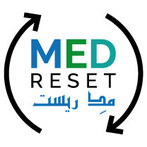- FAMA
- Researchers
-
Projects
- MESPI
- Knowledge Production Project >
-
Political Economy Project
>
- Development and the Uprisings
- Class Formations and Dynamics
- The Palestinian Economy: Fragmentation and Colonization
- Tunisia: A Political Economy in Transition
- Migrant States, Mobile Economies: Rethinking the Political in Contemporary Turkey
- Political Economy of the Middle East: Continuities & Discontinuities in Teaching & Research
- 2016 Political Economy Institute
- The Lebanon Project >
- The Palestine Project >
- The Civil Society Project >
- Middle East Media Project >
- The Egypt Project >
- Refugees and Migrants Project >
- Black-Palestinian Transnational Solidarities Project
- Initiatives
- Events
- Summer Institutes
- Internships
- Blog
W H A T I S M E D R E S E T ?
W H A T I S M E D R E S E T ?
MEDRESET is a consortium of research and academic institutions focusing on different disciplines from the Mediterranean region to develop alternative visions for a new Mediterranean partnership and corresponding EU policies. It aims at designing an inclusive, flexible, and responsive future role for the EU in the region based on the multiple perspectives of local and bottom-up actors.
MEDRESET is a project mainly funded under the European Commission’s Horizon 2020 Programme for Research and Innovation with a total budget of 2,497 million Euros. It will run for three years, starting in April 2016.
MEDRESET is a project mainly funded under the European Commission’s Horizon 2020 Programme for Research and Innovation with a total budget of 2,497 million Euros. It will run for three years, starting in April 2016.
|
O B J E C T I V E S
MEDRESET’s double objective is to:
|
O R G A N I Z E R S / P A R T I C I P A N T S
Istituto Affari Internazionali (IAI), Italy
College of Europe Natolin Campus (CoE-N), Poland Durham University (UDUR), UK Center for Public Policy and Democracy Studies (PODEM), Turkey El Manar University, Faculty of Law and Political Science (FDSPT), Tunisia American University of Beirut (AUB), Lebanon Barcelona Centre for International Affairs (CIDOB), Spain Faculty of Economics and Political Science, Cairo University (CU), Egypt IPAG Business School (IPAG), France Forum Internazionale ed Europeo di Ricerche sull'Immigrazione (FIERI), Italy University Moulay Ismail (UMI), Morocco Arab Studies Institute – Research and Education Methodologies (ASI-REM), Lebanon |
|
W O R K P L A N
|
O U T P U T
|
|
MEDRESET is organized in three phases and 10 work packages which build on one another.
Phase I (WP1 on EU Construction of the Mediterranean) will identify the EU construction of the Mediterranean and its own role in this process, as well as how the EU framing of the Mediterranean has translated into practice. This construction is contrasted by a mapping of the Mediterranean in Phase II. Phase II (WP2–7) takes stock of the Mediterranean as it is today from the perspective of a broad range of top-down and bottom-up stakeholders on both shores of the Mediterranean. This phase will show how these stakeholders ‘talk’ and ‘practice’ ‘their’ Mediterranean into being on the geopolitical level and in the four policy areas.
Phase III (WP8 on synthesis and policy) will integrate and evaluate the results of the research of WP1-7 to devise strategic policy options to reconstruct a new role for the EU in the region by working on the regional level with all relevant (clusters of) countries and on the bilateral level with policies tailored to the needs of the four target countries. WP9 (advocacy and outreach) and WP10 (coordination and management) will run throughout the project. |
Publications: including Working Papers, academic articles, and a collective volume.
Policy-relevant documents and activities: policy briefs, an evaluation report of EU policies, a gender report, a final policy report, an infographic, a series of policy lectures, and a final policy briefing in Brussels. Online activities and a knowledge-user community: website, bi-annual newsletter, contact database and a social media platform to disseminate information about the project. A knowledge-user community will be engaged not just as targets of research, but as part of the dialogue with researchers, notably through a close cooperation between MEDRESET and Jadaliyya. Events: public conferences, workshops, policy lectures, and briefings will be organised in partner universities across the Mediterranean to reach stakeholders, practitioners, policymakers, civil servants, opinion shapers, think tankers, media NGOs, government academics, early career researchers, and students. Panels will also be organized at international academic conferences. A young writers price: to engage students from the Mediterranean on issues related to the research of this project. The price will be awarded during the final conference of the project. |
- FAMA
- Researchers
-
Projects
- MESPI
- Knowledge Production Project >
-
Political Economy Project
>
- Development and the Uprisings
- Class Formations and Dynamics
- The Palestinian Economy: Fragmentation and Colonization
- Tunisia: A Political Economy in Transition
- Migrant States, Mobile Economies: Rethinking the Political in Contemporary Turkey
- Political Economy of the Middle East: Continuities & Discontinuities in Teaching & Research
- 2016 Political Economy Institute
- The Lebanon Project >
- The Palestine Project >
- The Civil Society Project >
- Middle East Media Project >
- The Egypt Project >
- Refugees and Migrants Project >
- Black-Palestinian Transnational Solidarities Project
- Initiatives
- Events
- Summer Institutes
- Internships
- Blog


